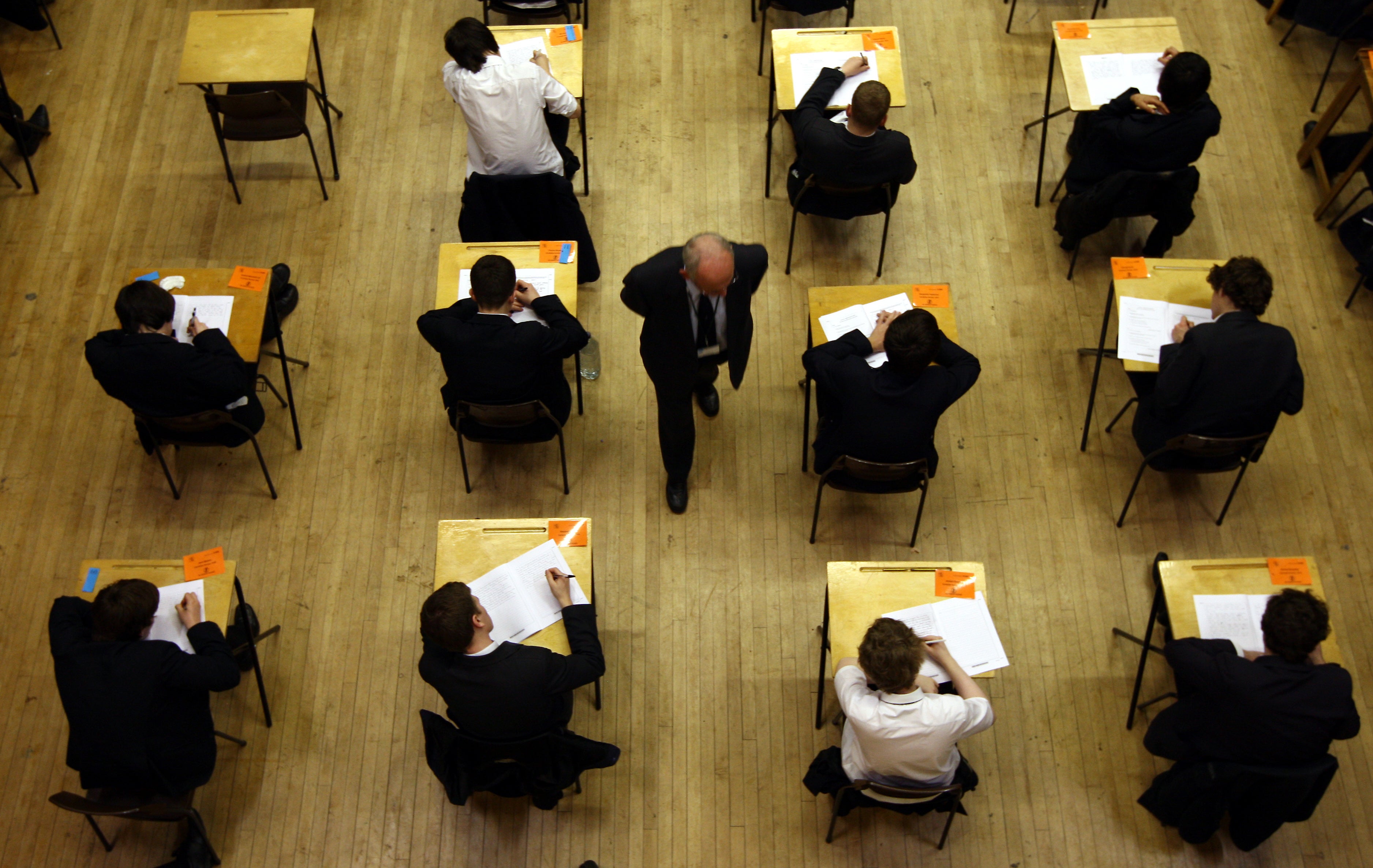A-level results day will not be ‘pain-free’, Ucas chief warns
Clare Marchant said Government departments and regulators are ‘working to make sure’ support is available on Thursday.

Your support helps us to tell the story
From reproductive rights to climate change to Big Tech, The Independent is on the ground when the story is developing. Whether it's investigating the financials of Elon Musk's pro-Trump PAC or producing our latest documentary, 'The A Word', which shines a light on the American women fighting for reproductive rights, we know how important it is to parse out the facts from the messaging.
At such a critical moment in US history, we need reporters on the ground. Your donation allows us to keep sending journalists to speak to both sides of the story.
The Independent is trusted by Americans across the entire political spectrum. And unlike many other quality news outlets, we choose not to lock Americans out of our reporting and analysis with paywalls. We believe quality journalism should be available to everyone, paid for by those who can afford it.
Your support makes all the difference.The return to post-pandemic exam arrangements means A-level results day will not be a “pain-free” experience for students, the head of the Universities and Colleges Admissions Service (Ucas) has warned.
This year’s race for university places is expected to be one of the most competitive yet, with almost 40% of students thought likely to make use of the clearing system to get a place on a course.
Clare Marchant, Ucas chief executive officer, also said that, amid the soaring cost of living, more than two-thirds of prospective university students are already considering part-time work.
She said that, in the context of the rising cost of living, would-be students are also looking for universities closer to home, and confirmed Ucas intends to track accommodation, grocery and course material costs as the academic year progresses.
In a webinar on Monday hosted by the the Higher Education Policy Institute (HEPI), Ms Marchant said that, while Ucas expects either a record or near-record level of students getting their first choice, the experience will not be easy for everyone and support for students will be needed.
Ucas has acknowledged that universities’ approach to making offers to students this year has been a cautious one.
In September, Ofqual, the exams regulator for England, announced that this year’s grades would aim to reflect a midway point between 2021 and 2019.
Ms Marchant said: “A return to either an intermediary position or, as Ofqual have said, a midpoint, was never going to be pain-free and I think we would kid ourselves to say that that is going to be pain-free, although necessary to do.
“So I think there is lots of positive news in terms of potentially looking at record or near-record students getting into their first choice. But similarly, we all know that a return to midpoint is something that potentially needed to be done, but is not easy.”
In a report published at the weekend, Professor Alan Smithers, director of the Centre for Education and Employment Research at the University of Buckingham, said there could be 80,000 fewer top grades – A* or A – awarded than in 2021, meaning some 40,000 students could miss out on their course or university of choice.
Ms Marchant said Government departments and regulators are “working to make sure that, through all of our social media messaging, that support is around” for students on Thursday.
Ms Marchant said through their tracking of students using their website, they know that almost 40% intend to use clearing this year.
According to a survey conducted by Ucas in late-June of 941 students with university offers, the proportion looking at staying at home for university has reduced slightly after rising during the pandemic, but people are “potentially looking to stay closer to home”, Ms Marchant said.
Ms Marchant said: “We’ve specifically asked students around cost of living and that is something, whether it’s accommodation costs or grocery costs or course material costs, that we are going to track as those students start university or college in the autumn.
“We know 70% of them are already thinking about a part-time job. We know that we’re tracking travel time that they’re looking for, and whilst that increased slightly during the years of the pandemic, it has slightly dropped off and so whilst they’re not necessarily looking to stay at home in greater numbers, they are potentially looking to stay closer to home.”